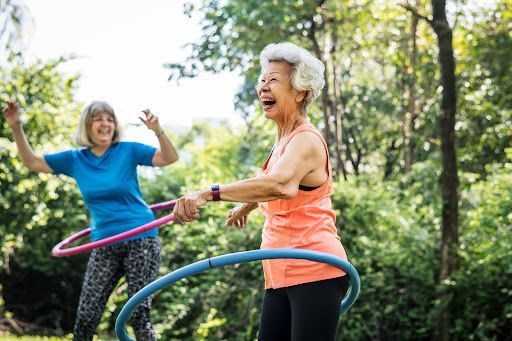As summer approaches, it brings with it a unique set of considerations for the care of senior citizens. The summer season can be a joyous time for seniors to engage in outdoor activities, spend quality time with loved ones, and soak up the sunshine. However, it also presents certain challenges and risks that must be carefully addressed to ensure the health, safety, and well-being of our senior population. In this blog, we will explore key considerations for senior citizen care during the summer months.
Hydration
Proper hydration is of utmost importance, especially during the hot summer months. Seniors are particularly susceptible to dehydration due to age-related changes in the body's ability to regulate temperature and thirst. You should encourage your loved one to drink an adequate amount of water throughout the day, even if they don't feel thirsty. Fresh fruits and vegetables with high water content can also help in maintaining hydration levels.
Sun Protection
Seniors have delicate skin that is more prone to sunburn and damage from harmful UV rays. You should ensure that your loved one is adequately protected from the sun by encouraging the use of sunscreen with a high SPF, wearing hats, and opting for lightweight, breathable clothing that covers exposed areas. Outdoor activities should be planned during cooler times of the day, such as early mornings or late evenings, to minimize sun exposure.
Heat Safety
Extreme heat can pose significant health risks for seniors, including heat exhaustion and heatstroke. You should create a cool and comfortable environment by using fans, air conditioning, or ensuring proper ventilation. Seniors should avoid strenuous activities during the hottest parts of the day and opt for indoor or shaded areas when the temperature rises. Regular check-ins and monitoring for signs of heat-related illnesses are crucial.
Medication Management
Many seniors take multiple medications, and certain medications can interact negatively with heat or sunlight. It is important to review medications with healthcare professionals to ensure they are not affected by summer conditions. You should also assist your loved one in properly storing medications away from direct sunlight and at appropriate temperatures, as some medications can be sensitive to heat.

Social Engagement
The summer season offers numerous opportunities for seniors to engage in social activities and connect with others. Encourage seniors to participate in community events, outdoor gatherings, or recreational activities tailored to their interests. Social interaction not only enhances mental well-being but also provides a support system that can help identify any potential issues or changes in health.
Travel Precautions
If seniors are planning to travel during the summer, you should take necessary precautions to ensure a safe and enjoyable trip. Researching the destination for medical facilities, accessibility, and climate conditions is vital. Packing essential medications, medical records, and emergency contact information is also crucial. If traveling by car, regular breaks to stretch and hydrate should be scheduled.
Insect and Allergy Awareness
Summer brings an increase in outdoor insects and allergens that can affect seniors, particularly those with existing respiratory or immune system conditions. You should be proactive in protecting seniors from insect bites and ensuring the appropriate management of allergies. Taking precautions such as using insect repellents, wearing protective clothing, and keeping windows and doors screened can help minimize the risks.
As we embrace the joys of summer, it is essential to consider the unique needs of senior citizens. If you would like to learn more about receiving specialized care in the summer, contact us for a free consultation.



